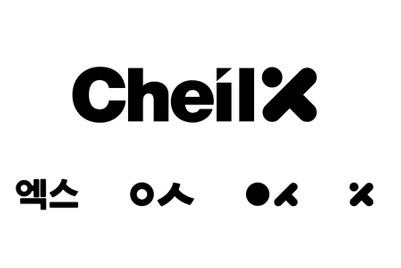
Many companies are struggling to become good companies. Today’s consumers believe that companies are obliged to conduct ethical management and make contributions to society. Indeed, companies’ track records on social contribution affect consumers’ purchasing decisions. Like it or not, businesses are now socially required to deeply move consumers’ hearts, which in turn leads to improved business performance.
With increasing interest in CSR, it has become crucial to offer solutions which not only reflect the features of goods and services but also—more importantly—communicate the social roles of firms.
Defining 'good works'
From an agency’s point of view, good works should be not only kind behaviours but also ways to empower clients in areas where they can outperform others when it comes to addressing social issues. Toms ‘One for One’ and Walmart’s $4 prescriptions are prime examples as they have actively created new social values based on their own capabilities. TOMS has driven ethical consumption by giving a pair of shoes to a child in need with every purchase a consumer makes; and Walmart has come to the aide of many underprivileged patients and given them access to necessary life-saving medications.
Solutions to make all happy
It is increasingly difficult to differentiate brands in the age of mass production, packed with cookie-cutter products and information being churned out every day. State-of-the-art technology emerges overnight and boundaries between industries and businesses diminish. So, it is not easy to deeply inspire and move people. While anyone can define absolute evil, it is hard to find absolute good.
Market expectation will never be met with ideas that anyone can think of. Many brand issues cannot be solved by advertising; this is the area that requires out-of-the-box thinking. Advertising agencies can now become a developer, an inventor and a scientist by joining the early stage of product development. For example, Nike Fuel Band was the outcome of R/GA’s engagement. The role of agencies must evolve from advertising to the creation of solutions which can provide new brand experiences. Then, consumers will be moved.
Here are two examples (from my agency) that have been effective.
 In Poland, there are approximately 700,000 children who don’t eat hot meals on a regular basis. The Polish Red Cross has been raising donations for them since 2001. Although traditional fundraising campaigns had worked reasonably well, the organisation understood the need to stage a more long-term solution for those malnourished kids. So they took something that is already a part of our society—good manners—and changed it into something even better with the 'Very Good Manners' campaign. They partnered with local restaurants, in which when a customer crosses the cutlery on their plate (similar to the Red Cross' symbol) after a meal, the staff adds 5 PLN (about 1.5 EUR) to the bill. This donation is transferred to the Polish Red Cross' Decent Childhood fund. Thus basic table etiquette turned into a way to foster a culture of giving. The true beauty of this campaign is that it is an effortless and seamless way of making small donations, without any elements of state-of-the-art technology.
In Poland, there are approximately 700,000 children who don’t eat hot meals on a regular basis. The Polish Red Cross has been raising donations for them since 2001. Although traditional fundraising campaigns had worked reasonably well, the organisation understood the need to stage a more long-term solution for those malnourished kids. So they took something that is already a part of our society—good manners—and changed it into something even better with the 'Very Good Manners' campaign. They partnered with local restaurants, in which when a customer crosses the cutlery on their plate (similar to the Red Cross' symbol) after a meal, the staff adds 5 PLN (about 1.5 EUR) to the bill. This donation is transferred to the Polish Red Cross' Decent Childhood fund. Thus basic table etiquette turned into a way to foster a culture of giving. The true beauty of this campaign is that it is an effortless and seamless way of making small donations, without any elements of state-of-the-art technology.
Samsung’s Power Sleep, on the other hand, takes on the latest technology—crowd-computing. It is a smartphone alarm application that enables users to easily donate their smartphones’ unused computing power to scientific research, while sleeping. Again, this doesn’t require anything extra from the users. Just by doing something as habitual as setting an alarm every night before going to sleep, smartphone users all over the world can put their phone to a good use by contributing its processing power to research labs that lack supercomputers.
These two cases support the rationale to define doing good works as ‘replacing old practices with new ideas’. Or, to put in other words, doing good works is to find solutions which make everyone happy so that corporate values and consumer values can coexist in harmony.
The scope of media has broadened dramatically over the last few years with the advent of technology, and so did advertising industry’s work culture. Many companies are moving to create ‘problem-solving’ solutions, going beyond simple ads. So, an agency should sometimes become a creative detective to explore what their clients can do best, a pioneer to bring state-of-the-art technology, or a coordinator to facilitate collaboration among seemingly totally unrelated parties. Most of all, the industry mindset should be based on a strong conviction that doing good works can bring success to clients, alter markets, and eventually, move the world.
Jae-young Choi is the head of Good Company Solution Centre, Cheil Worldwide’s do-good division aimed at advising clients on CSR.


+(900+x+600+px)+(3).png&h=334&w=500&q=100&v=20250320&c=1)
+(900+x+600+px).jpg&h=334&w=500&q=100&v=20250320&c=1)
.jpg&h=334&w=500&q=100&v=20250320&c=1)


.jpg&h=334&w=500&q=100&v=20250320&c=1)

+(900+x+600+px).png&h=334&w=500&q=100&v=20250320&c=1)

.jpg&h=334&w=500&q=100&v=20250320&c=1)




+(900+x+600+px)+(2).jpg&h=268&w=401&q=100&v=20250320&c=1)
+(900+x+600+px)+(3).jpg&h=268&w=401&q=100&v=20250320&c=1)

+(900+x+600+px).png&h=268&w=401&q=100&v=20250320&c=1)